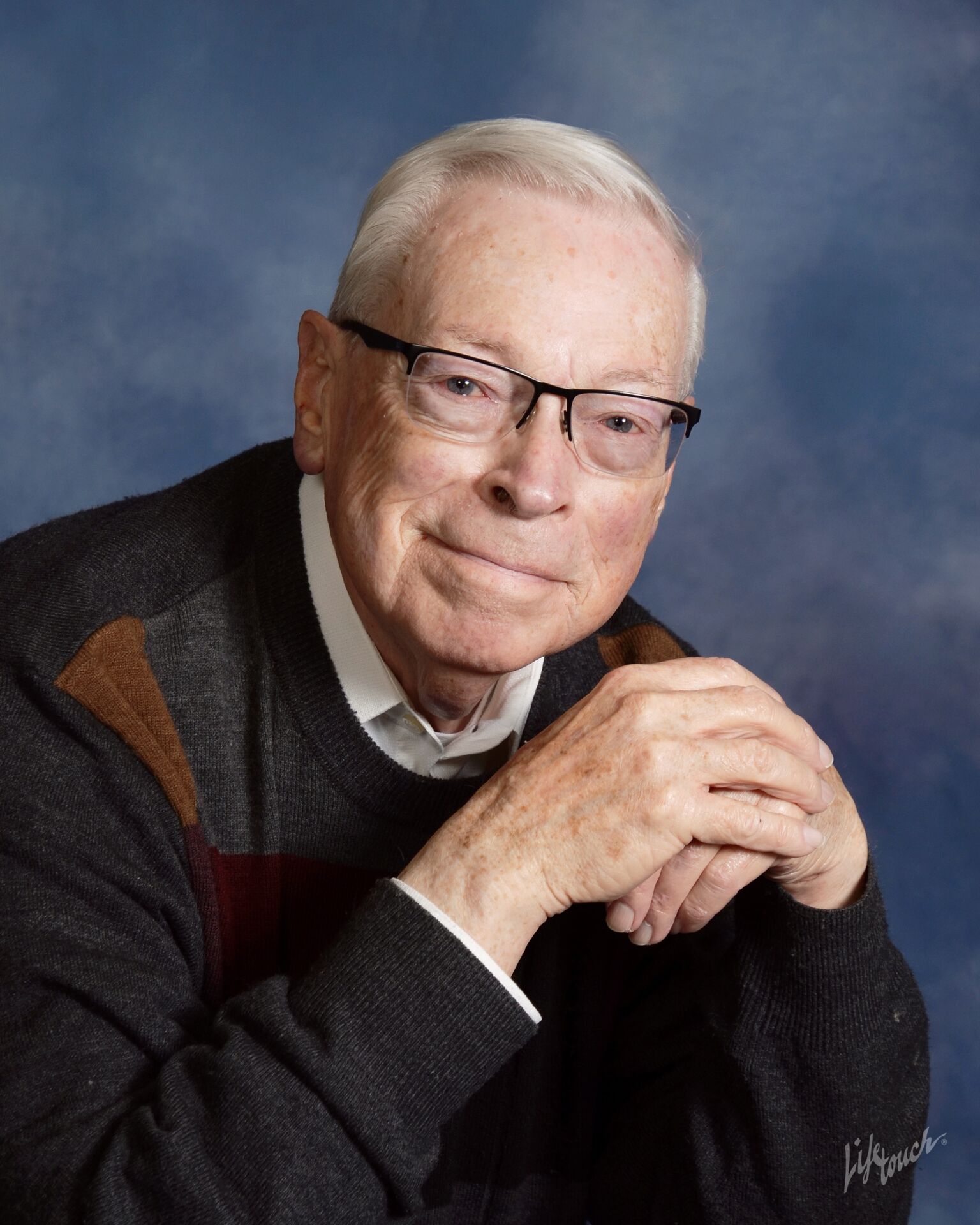Chapter Sixteen
Mastering the Art of Forgiveness
SELF-FORGIVENESS & SELF-ACCEPTANCE

By Dr. Robert Leichtman
Much of our informal learning derives from moving through life through a process of trial and error. This means our learning curve will be filled with many partial successes and failures. There will be wins but probably even more losses. Some opportunities will work out for us, and others will be duds.
This mixture of victories and defeats is managed quite differently by individuals. Some accept failure and loss very poorly by reacting with irritation and self-blame. Others are more resilient and generous in their response. Those persistently critical of their performance tend to accumulate considerable resentment about their difficulties. Eventually, this can curdle into self-rejection about being incompetent and bitterness about the problems in our life. Our inner critic can feed on this conflict and become a monster of condemnation, quickly responding with disappointment about the slightest flaw in our personality or behavior.
Sometimes we may have a reasonable period without any current mistakes or defeats, but our inner critic will delight in finding memories of old disasters to occupy its anguish. Many will find themselves strangely reliving old struggles and embarrassments to keep us mindful of our failings.
Relief from the sabotaging impact of our self-rejection will require us to stop wounding ourselves with our excessive self-criticism. The core of this effort must include the practice of self-forgiveness and praise for our strengths and virtues.
We also need to transform how we manage what we view as personal failures. We need a process that does not lead to rigid right or wrong conclusions or simply blaming others for our problems. Nor do we want to end with simplistic reassurances to ourselves that everything will be okay if we only keep wishing for what we desire. Instead, we will require realistic steps to be more assertive in specific behaviors and the effort to become increasingly productive, tolerant, or whatever else we need to improve our performance.
A new way to view conflicts and failure in life
The great lessons we need to become competent adults differ from academic learning about basic math or history. When the matter to be studied consists of easily acquired facts and rules, it is simple. The ideas and methods are concrete, and their practice is easy to follow.
However, the major lessons we need for a fulfilling life are combining and organizing the right skills, knowledge, and habits. We must learn to coordinate multiple priorities while struggling with various challenges and social obligations.
Most of these practical and essential skills must be developed by stumbling through the difficult work to perfect them. Learning by doing is a path that everyone must use. This learning curve is slow and littered with many sharp turns and speed bumps. We must cope with these impediments with grace and understanding—not offense and self-criticism.
The analogy of how a speed bump interrupts our education is appropriate. This is because no one should stop for a speed bump. It simply slows down but should not halt our progress. If we give up after our initial failures and losses, we may deprive ourselves of the opportunity to learn what we could have gained from those experiences. We may need to modify some goals, but we must also recognize that we must overcome many limitations. This path may require us to be more assertive and experiment with new choices for managing our challenges.
Condemning our mistakes is a poor way to motivate ourselves for success. We must strengthen our ability to sort through what has happened and what we did about it. This effort requires honesty and a vision of where we intend to go. If we allow our feelings of disappointment to evaluate the results of our decisions and actions, we will probably add to our doubts and fears of failure. Instead, we need to be thoughtful about recognizing the successful parts of our activities and combine this with learning from our mistakes. This view and intention will build greater confidence in ourselves and what we do.
Acquiring the expertise and style to master our tasks and opportunities may take years. It may take even longer to conquer our fears, doubts, and the tendency to blame ourselves or society for a poor result.
What is the correct way to manage our mistakes and defeats?
Many assume their good intentions will suffice to master most problems, believing their ability to keep breathing will complete the tasks. Others distract themselves from their issues by claiming they are more concerned about the needs of others and working to correct injustice in society. A more realistic approach would be to focus on the quality of our struggles and challenges to improve our contribution to society’s general health and progress.
The most constructive way to proceed would be to apply a proactive approach to our efforts. Instead of concentrating mainly on what went wrong, we must look for what we can rescue from our current circumstances to begin again in new endeavors. This work should include what we can learn from what has happened and how we could apply these insights to what we do next. Extended grief and attacks on us and others are pointless.
Having the proper perspective on these issues is vital. We need to understand that we are not in a horse race where there is only one winner who takes all. Instead, we are in a process where we all can win by learning from the failures, partial successes, and real successes of everyone. Each experience can lead us toward more excellent knowledge about what works to increase our health and well-being and what does not. We can apply these discoveries to the revisions we must make in our expectations and behavior. Naturally, this is impossible unless we can overcome our habit of condemning ourselves for everything we do that is less than perfect.
The lubricant for easing the pain of partial failures on our learning curve is the reassurance we can do better and honest self-forgiveness. It is the anesthetic for our embarrassment and a balm for our wounded pride. Self-forgiveness enables us to continue our path instead of pausing to nurse our wounds and add to our grievances about our struggles.
Self-forgiveness is not the same as self-pity
Many confuse self-forgiveness with self-pity. This is a major mistake that can prolong resentment and sustain our grievances. Self-pity focuses on our suffering, not health, strengths, or well-being. We will insult our dignity if we concentrate on our emotional wounds and how they have limited our joy in life. This morbid focus only increases our awareness of what is wrong and unfair about our lives. Also, self-pity will anchor us more deeply in our conviction that we are victims of terrible events. The long-term effect of seeking sympathy for our injuries is to become resigned to suffering and helplessness, not a genuine improvement.
If this scenario seems ill-conceived and harmful, it is! Yet, it is practiced by millions. It results from our search for comfort without effort or meaningful change. Being comforted about being abused or neglected may seem kind and appropriate, and it is, but only as a first-aid treatment for acute emotional injuries. In the long term, it prevents genuine healing because this energizes helplessness and affirms our status as a victim.
Sympathy often is all that many are willing to receive or give. Actual guidance about helpful changes to our attitudes and habits is often unwelcome. The familiar but unspoken reason why many reject good advice is two-fold. First, authentic solutions will probably force them to take more responsibility for fixing their problems. Secondly, honest answers will require them to make personal efforts and sacrifices.
Consider, for example, if we accidentally twisted our ankle. Now moving about causes pain. We might expect sympathy and support from our friends, but if this is all they provide, we might wonder about the depth of their concern. Would anyone help take us to an emergency room to get X-rays and see a health professional? Would they help us to get medicine to relieve pain? The total care of a badly sprained or broken ankle should be a lot more than giving sympathy. The same view should apply to all our emotional injuries, old or new.

Habituated to minor problems and complaints
Unfortunately, many prefer endless sympathy and pity because it provides cheap comfort and validates our needy situation. As a result, many learn to use their distress to procure extra benefits. Some individuals quietly embrace assorted minimal illnesses and complaints to gain attention and be excused from their usual obligations. They know their minor, but chronic illness, weakness, or pain is the one item that makes them extra special and gives them additional influence. For this reason, many will be reluctant to give up their distress.
People often crave power and significance by acquiring it through a perpetual need for sympathy and pity. This is merely the passive-aggressive version of being a bully! Manipulating others through the enticement of sympathy works better than the use of intimidation, but it is equally destructive. The sympathetic support of those who do not deserve it is common and difficult to criticize. However, sympathetic support risks enabling a retreat into helplessness and parasitism—the opposite of robust health in which we assert our strengths and independence.
The need for mature self-acceptance
If we go overboard in condemning ourselves for every disaster and missed opportunity, we also should recognize the immense harm this does to our future. This practice stifles our capacity for confidence, assertiveness, and creativity to adapt to new conditions. The solution to this is not self-indulgence or the silly fantasy that we no longer desire what we failed to acquire. This path would be worse than continual self-rejection.
Mature self-acceptance is a matter of knowing we have some parts of our character that need improvement and polish. No one is without some areas of low expertise or clumsiness. Fortunately, we usually have other abilities and strengths that compensate for being mediocre or helpless in a few places.
What standards shall we apply when we judge ourselves?
Consider, for instance, that your hairdresser or barber probably cannot do heart surgery or represent you in a lawsuit, yet they are appreciated for what they do for you. Nor is it probable that the mechanic maintaining your car can teach calculus to your children. We all have our areas of expertise, and we must be mindful of this as we review where we are not so strong.
Our sense of identity should be honest in celebrating our most skillful and knowledgeable parts. Of course, we need to be mindful of our shortcomings as well as our strengths, but not to the extent that we emphasize them over our good qualities. Those who are brutal in condemning themselves for their flaws and mistakes must monitor their judgments and abort the automatic tendency to leap on every misstep and flaw. We can do better than this.
For religious types, the same warning applies to those who presume they are just a pile of sins that offend their Creator. Our virtues and service are almost always more important than our flaws. Our spiritual strengths are measured more by how well we cope with our challenges and seek to do what is suitable and helpful, not the absence of sin that even stones in the parking lot can claim.
How much we love the dogma and praise God is also not a good measure of our worth. Any sociopath can do this! What we do with our challenges and opportunities is the best test of our value as a child of God. Don’t be too concerned about those who are busy counting your sins and sniffing your shoes for the odor of hell. They are like our overactive inner critic, who loves to condemn us. Ignore them.
Perfection is a distant and unique goal that should concern diamond cutters, makers of bombs, and other similar types. For the rest of us, perfection is an ideal we can use as a guide, not a goal. Ideals will help us decide which way to go and when we have done enough. Our standards of perfection are not meant to strangle our confidence or disable our capacity for self-acceptance and productivity.
We should never consider that any failure is final, nor is every success the limit of our possibilities. Instead, we must accept ourselves the way we are, faults and all. Still, we must also know there is always more to learn and do.
Commentary
One essential activity that prepares us to forgive others is accepting genuine compassion and encouragement for ourselves. Praise and kindness are often in short supply, so we must learn to give them to ourselves before offering them to others. We need to know how to be a better friend to ourselves by participating in our healing and improvement.
The most direct way to accomplish this is to apply forgiveness and mature self-acceptance to ourselves. This will help to neutralize the harsh judgments we and others have inflicted on ourselves.
Summary
- Our primary learning process as young people is to struggle through much effort to master basic tasks of living. This includes learning to assert ourselves in many situations, dealing with our mistakes and losses, coping with defeat and embarrassment, and learning self-discipline. Many things can go wrong as these skills slowly emerge and are perfected.
- Some people tend to demand near-instant perfection in their behavior. Their intolerance of fault or failure leads them to harsh criticism about what they failed to achieve. This can lead to an accumulation of self-rejection and feelings of unworthiness. The consequence can become a significant barrier to our growth and progress.
- Self-forgiveness is the primary healing quality that will neutralize this excessive criticism and sense of unworthiness. We need it to heal a variety of natural, exaggerated, and imaginary sins we assume we have committed.
- Many become sidetracked from authentic self-forgiveness by becoming absorbed in self-pity and seeking sympathy from others. This effort short-circuits the process of self-forgiveness by focusing mainly on our wounds and helplessness instead of our potential for recovery. Self-forgiveness is a product of hope, courage, confidence, and cheerfulness, not sadness that we have suffered.
EXERCISES
- Remember that a mistake is not a mistake until we repeat it. Are we refusing to revise our beliefs and habits after a bad outcome? Are we secretly trying to tell the world it needs to change instead of us? Is this a smart thing to do?
- Do we realize how often the desire for perfection interferes with ordinary success? Ideals are meant to guide us instead of being a goal. Rigid rules and standards are rarely necessary in most areas of life. If we are kind, thoughtful, and practical, few should ever complain, not even us!
- Understand basic kindness is not just a matter of fluffy sweet feelings. Kindness, especially kindness directed to us, comprises tolerance, gentleness, wise understanding of what to do and say, and a willingness to “suck up” minor irritations. A calm silence can sometimes be the proper behavior.
Think on these things

Chapter 17: What To Do When Forgiveness Seems Too Difficult
Chapter Seventeen Mastering the Art of Forgiveness WHAT TO DO WHEN FORGIVENESS SEEMS TOO DIFFICULT By Dr. Robert Leichtman Listen to this course The work

Chapter 15: Working with the Higher Life
Chapter fifteen Mastering the Art of Forgiveness Working with the Higher Life By Dr. Robert Leichtman Listen to this course Sometimes we find ourselves in

Chapter 14: Being Proactive versus Reactive
Chapter fourteen Mastering the Art of Forgiveness BEING PROACTIVE versus REACTIVE By Dr. Robert Leichtman Listen to this course Winston Churchill emphasized one of the
